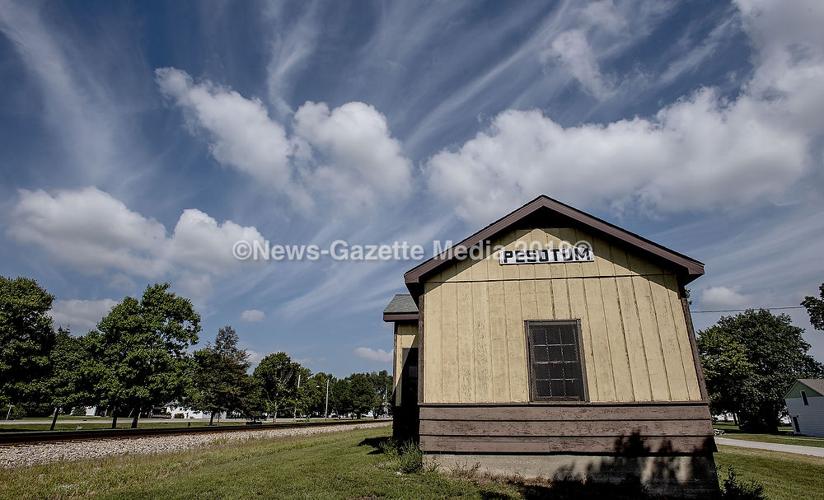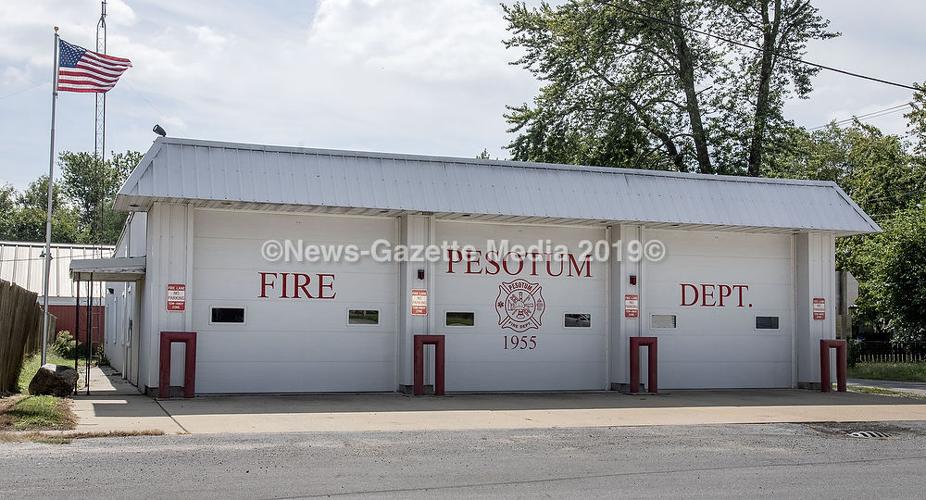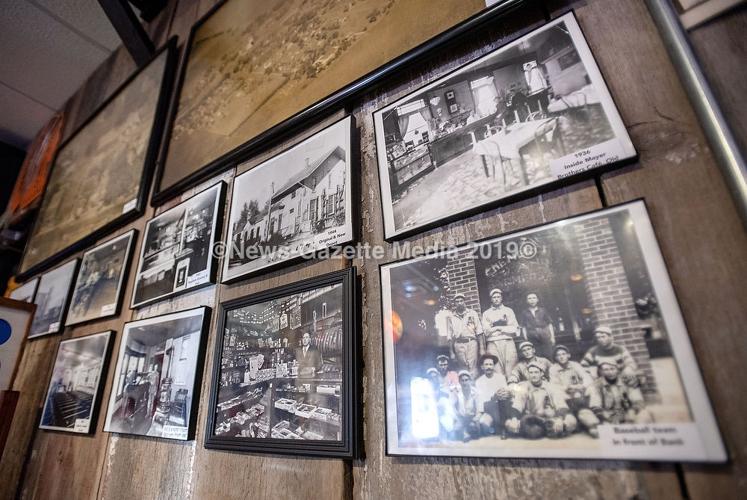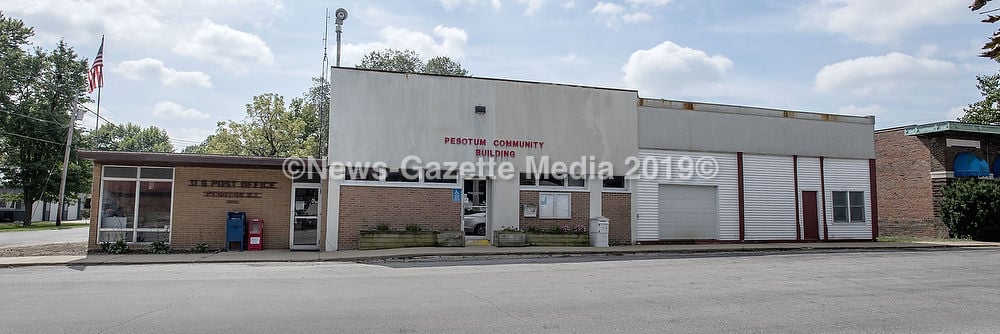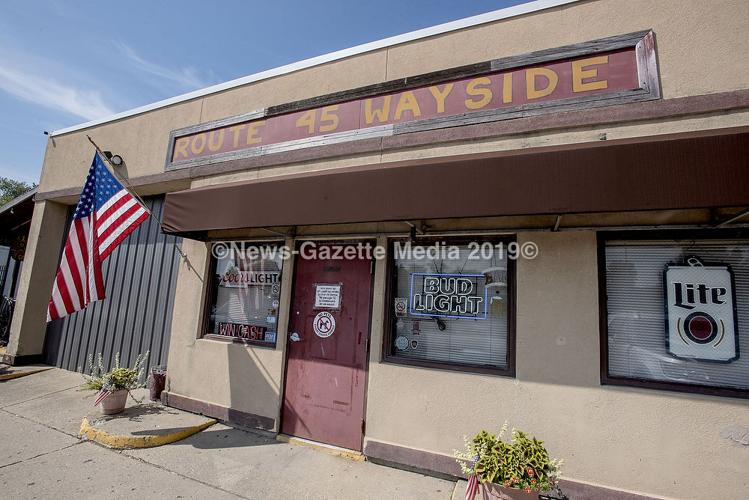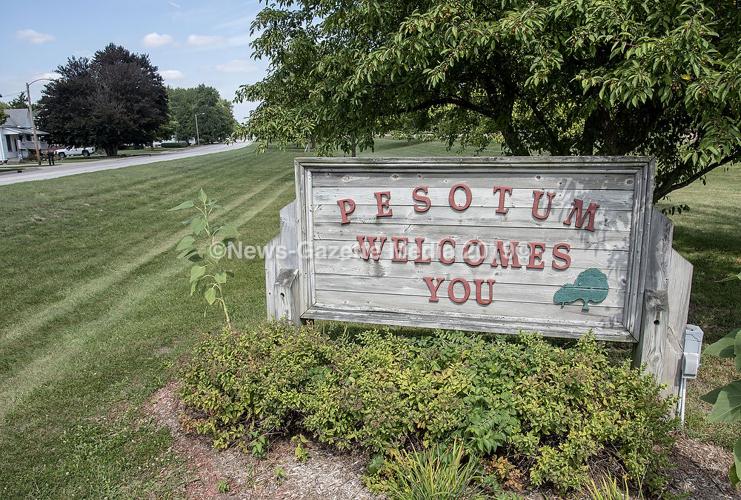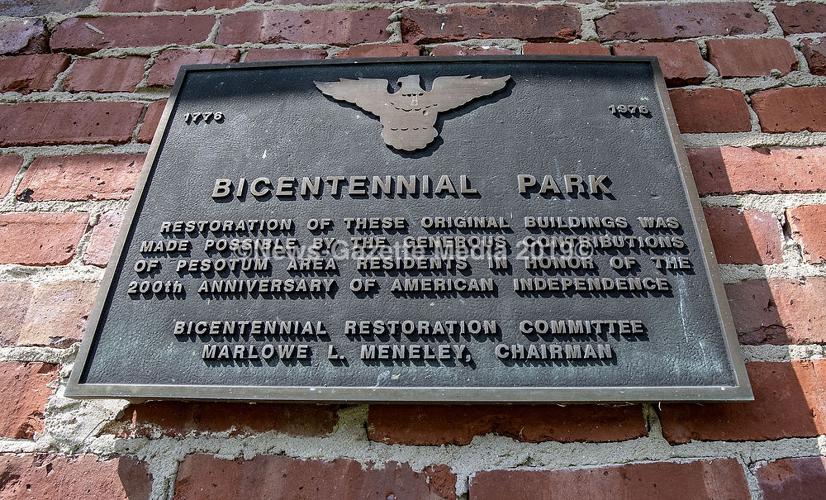It’s not unusual for people to drop in at the Route 45 Wayside looking for more than food and drink.
At the south end of Pesotum, there’s an Interstate 57 exit, but there’s no gas station or convenience store in or around this Champaign County village of 534.
Wayside owner Lora Witheft jokes that she could make some extra money if she kept a full gas can for the occasional visitor asking for directions to the nearest pump.
There’s potential. An average of 23,000 vehicles a day zip by Pesotum on I-57, according to the Illinois Department of Transportation, and roughly 4,000 a day drive into the heart of town on U.S. 45, which stretches 10 miles north to Savoy.
In a building that was, coincidentally, a full-service filling station and garage on U.S. 45, the Wayside has evolved into a hub of activity in this quiet, tidy town that hosts no other standalone businesses.
Waysiders can grab lunch or supper any day of the week, bring their kids to hear live bands on the family-oriented “Sunday Funday” afternoons in the “backyard,” participate in the annual frozen turkey bowling fundraiser for the school art program, or play in the Thursday night bags league or the burgeoning sand volleyball league that pulls players into Pesotum from Champaign, Urbana, Charleston and other area cities.
Just be sure to fill up the tank before coming.
“I would love a gas station here,” Witheft said, echoing comments of other residents who work in C-U, Tuscola to the south, or elsewhere outside this mostly bedroom community made up of predominantly single-family, owner-occupied houses, with a fair share of retirees.
Pesotum-ites may get their wish sooner than later.
Village President Joyce Ragle said wheels are in motion to hopefully bring a gas station back to a previous site — south of town, west of the I-57 interchange. The Illinois State Police District 10 headquarters building is just east of the interchange.
“We are hoping by next year that they will at least start work,” said Ragle, explaining that the village sees this potential development and other opportunities materializing when the long-anticipated Cronus Fertilizer plant in rural Tuscola is up and running, although that might not be until 2022 or 2023.
Like many Midwestern small towns, Ragle said, Pesotum used to have small businesses aplenty. Two banks, taverns, a hardware store, a hotel and St. Joseph Catholic Church and parochial school are all gone — some completely removed from the landscape, a la Pesotum High School.
Decades ago, Pesotum joined other towns in forming the Unit 7 Unity school district, so younger children in town now go four miles north to Unity West Elementary and the older kids travel six miles north to the junior high and high school complex in Tolono.
For a majority of the last century, Pesotum families had a choice of sending kids to a public school in town or a parochial school — at the now vacant St. Joseph Catholic Church on the southeast side of town, near Hartman Park.
With a healthy flow of immigrants to the area around the turn of the last century, there was a second Catholic church, St. Mary, three miles southeast of Pesotum, that’s still active today. But the only active church in town these days is Pesotum United Methodist.
“It’s a very nice little church. Everybody’s friendly,” said Reed, adding that their congregation has shrunk in numbers over the years.
St. Joseph now sits idle with weeds growing around it. But vacant buildings are an anomaly in Pesotum.
Ragle said the village board is currently working on nuisance ordinances to address issues like junk cars and weeds, although the town doesn’t have many properties with such issues.
“When we do have something, we try to get on it and get it corrected,” she said, adding that Pesotum doesn’t have much in the way of rental property. Much of the older housing stock is still intact and well-maintained.
But seeing a new gas station built on the same site where one closed five or six years ago would be one welcome step toward new development.
“Every community needs something to help it grow,” said Ragle, whose family moved to Pesotum from Tuscola 18 years ago for a house in a community they liked and was halfway between her job and her husband’s.
“It’s a nice, clean, quiet town,” she said. “I think when people drive through, they notice how clean it is and welcoming.”
Running parallel with U.S. 45, Amtrak’s City of New Orleans route carried more than 234,000 people through Pesotum last year, offering them a brief glance from the Canadian National Railroad line that slices the town in two.
Trains don’t stop here.
But an expansive, grassy right-of-way with some trees runs down both sides of the tracks in downtown Pesotum. The area attracts train enthusiasts, who gather at the Lincoln Street crossing to watch, and often photograph, oncoming trains, especially the City of New Orleans, said Paul Rennells, who lives half a block away.
The old depot still sits near the tracks in the center of town, along with the tiny brick jail, remnants of earlier years when the town derived its name from the Pesotum station established by the Illinois Central Railroad in 1854, according to the book “History of Champaign County.”
The name “Pesotum” was that of a Pottawatomie Indian chief “who formerly roamed over these plains and made his home near Lake Michigan,” according to the historic account.
On all sides, rich farmland still surrounds the town, but today a variety of other reasons attract people to make Pesotum home — community roots, housing affordability, lower taxes, the Unit 7 school district and the slow pace.
A year ago, Atkins Group-owned farmland northwest of Pesotum drew close to 10,000 people to town for a performance by Luke Bryan, part of the country music star’s farm tour. The event went off without any major problems and brought tons of people into town that had never been here, Witheft said.
For Rennells, it wasn’t thousands of people that led him in 2005 to buy, gut and renovate a 130-year-old house across from village hall.
“It was the population. It was small,” said Rennells, a civil engineer who now runs his own landscaping business — Outdoor Designs Illinois Inc. — out of his home. “I think this is a really nice town where people like to keep to themselves.”
No local IGA, no problem, Rennells said. He saves when he buys in bulk. And you can now safely drink water right from the hose, he added.
Before Illinois American Water began supplying the town several years ago, he said the underground well-supplied water was cheap — $8 a month regardless how much you used — but had a lot of iron in it.
“You could fill up your tub and it would be orange, but run your sprinkler all day and it was still $8,” he said. “Now you can drink right from your hose without worrying about attracting magnets.”
Attracting people to fill village board seats is the big challenge in town, said Rennells, a former Pesotum trustee.
“People don’t have the time to give,” he said.
Village President Ragle is one of five women on the seven-member board. The town’s clerk, treasurer and attorney are also women.
“Really, I think women just get more done,” Ragle said.
At one time recently, she added, it was all women, and they discussed getting some men on the board.
Reed, a retired Unit 7 teacher who’s been a trustee for close to two years, recalls when she and her husband moved to Pesotum 49 years ago and the village board was all men.
“I kinda got recruited,” Reed said. “It’s a good thing to do.”
Fred Smitley is one of two men on the board, and his wife, Cheryl, is also a trustee and the previous mayor. She didn’t hesitate getting involved after they moved to Pesotum about 13 years ago. People in small towns don’t want the government in their business, she said, but they still want local government to take care of everything.
“This is a nice, quiet village and for the most part people are friendly,” said Cheryl Smitley, who was a former teacher in the San Diego area when she and her then-banker husband both survived a serious car accident and decided they needed a big change.
So they went in search of the perfect place to run a bed-and-breakfast and eventually settled on a more than 100-year-old Victorian house on the northwest edge of Pesotum, packed up and moved to central Illinois.
“We really like living here,” said Cheryl, a southern California native who admits rural Midwest living took some getting adjusted to. Maybe a bit less for Fred who lived in Paris, Ill., until he was a teenager.
They ran the Sweet Dreams Bed and Breakfast for several years, living in the original two-room house built in 1865 and leaving most of the rest of the Victorian to their guests.
The well-maintained historic home features ornate Charles Eastlake-designed woodwork in the downstairs rooms — one with a Brazilian marble fireplace — and three large upstairs bedrooms where guests slept.
“We enjoyed it,” Cheryl said of the B&B, which mostly catered to people visiting the UI campus for various reasons. But it was a ton of work and they now enjoy having the whole house to themselves in their quiet small town.
Compared to larger towns, locals agree that houses here are more affordable, taxes are cheaper and there’s virtually no crime.
Plus, the Unity school district has a good reputation, said Matt Paeth, who grew up in Pesotum and is now living in a newer section of town, raising his own kids with his wife, Jen Paeth, who works at the Wayside.
Pesotum has a lot of retirees, Matt Paeth said, like J.R. and Carole Burns, who moved here decades ago to raise their family. After decades in roofing, J.R. now spends several hours a day six days a week on his hobby, restoring Volkswagen Beetles.
He’s done 50 in the last 40 years and has five in his driveway currently awaiting their turn in his backyard workshop, once he finishes a VW bus.
“They sell fast,” said Burns, who used to race Beetles off road but now enjoys fully restoring them. An early riser who hits the coffee shop in Tolono before 5 a.m., Burns said he works quietly, out of respect for his neighbors. That is, until late morning, when he opens his shop doors, turns on his radio and works the day away.
“I’m just hiding out. ... My wife knows where I’m at, and I’ve got a refrigerator,” he said. “Everybody helps everybody here. It’s a nice little town.”
Matt Paeth said there’s a growing group of younger families moving in when homes become available.
Sixty days is about the average it takes a house to sell, said local resident Joyce Durbin, who works with RE/MAX.
“If it’s priced right, it won’t stay on the market long,” she said.
On his street alone, Matt Paeth said there are four to five people who graduated from his same class at Unity and are now raising families here.
“It’s small-town, so if something happens, everybody knows about it in 25 minutes,” he said with a laugh.
Reed, who grew up in the country, said Pesotum is big enough for her and the next best thing to being in the country.
“I’m not a city slicker,” she said. “You get used to peace and quiet. ... If you want to interact with people, you can. But you don’t have to.”
The only thing that regularly interrupts the peace and quiet are the trains, said Reed, whose house faces U.S. 45 and the rail line.
“Once you’ve lived here for a while, you don’t even notice them,” she said, “unless you have the doors open.”




